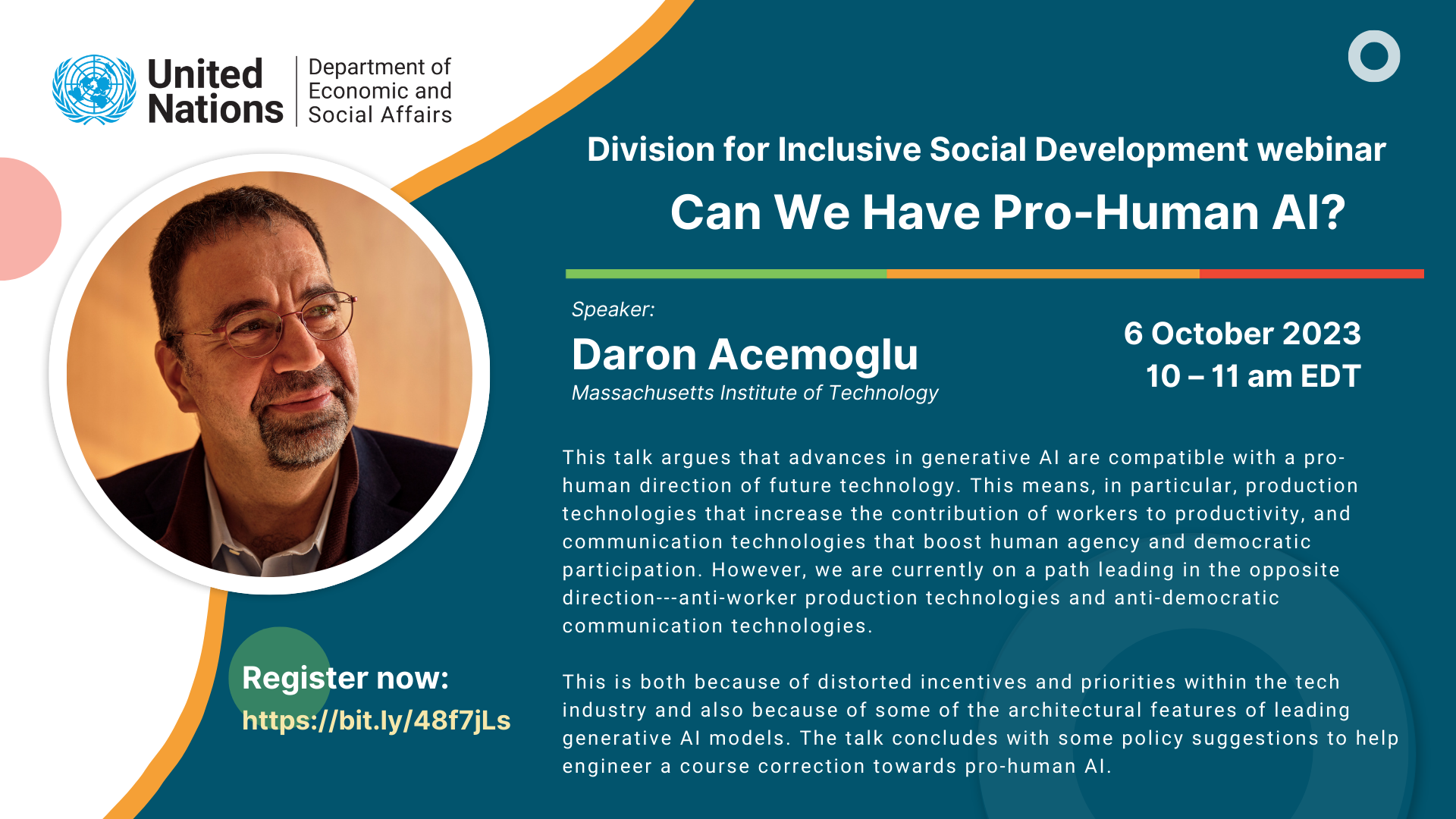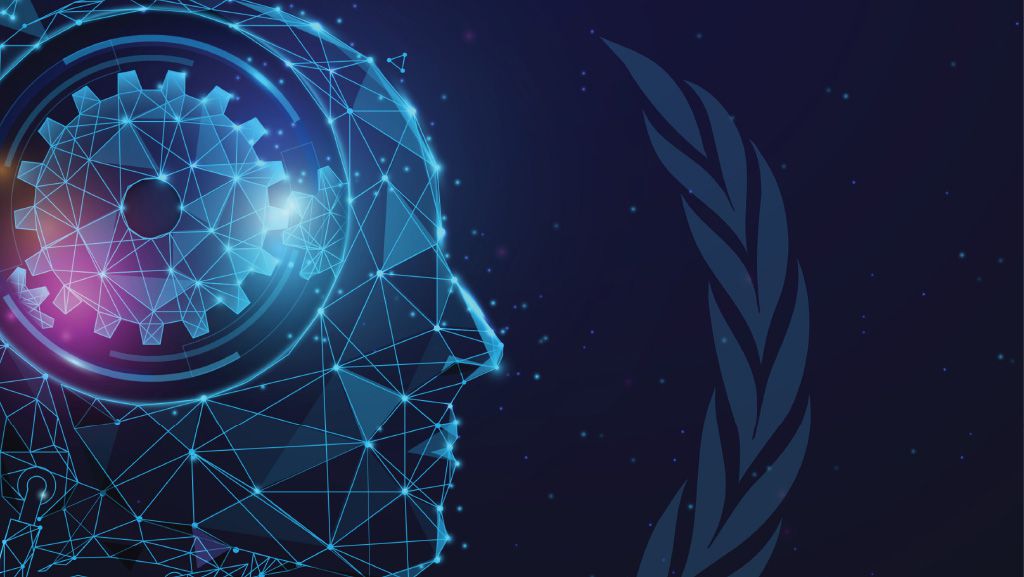
Division for Inclusive Social Development webinar
This talk organized by DISD argues that advances in generative AI are compatible with a pro-human direction of future technology. This means, in particular, production technologies that increase the contribution of workers to productivity, and communication technologies that boost human agency and democratic participation. However, we are currently on a path leading in the opposite direction---anti-worker production technologies and anti-democratic communication technologies.
This is both because of distorted incentives and priorities within the tech industry and also because of some of the architectural features of leading generative AI models. The talk concludes with some policy suggestions to help engineer a course correction towards pro-human AI.
When: 6 October 2023, 10am EDT (New York time)
Where: Online via Zoom, United Nations Headquarters in New York

Daron Acemoglu an Institute Professor at MIT and an elected fellow of the National Academy of Sciences, American Philosophical Society, the British Academy of Sciences, the Turkish Academy of Sciences, the American Academy of Arts and Sciences, the Econometric Society, the European Economic Association, and the Society of Labor Economists. He is also a member of the Group of Thirty.
He is the author of six books, including New York Times bestseller Why Nations Fail: Power, Prosperity, and Poverty (joint with James A. Robinson), Introduction to Modern Economic Growth, The Narrow Corridor: States, Societies, and the Fate of Liberty (with James A. Robinson), and Power and Progress: Our Thousand-Year Struggle Over Technology and Prosperity (with Simon Johnson). His academic work covers a wide range of areas, including political economy, economic development, economic growth, technological change, inequality, labor economics and economics of networks.
Daron Acemoglu has received the inaugural T. W. Shultz Prize from the University of Chicago in 2004, and the inaugural Sherwin Rosen Award for outstanding contribution to labor economics in 2004, Distinguished Science Award from the Turkish Sciences Association in 2006, the John von Neumann Award, Rajk College, Budapest in 2007, the Carnegie Fellowship in 2017, the Jean-Jacques Laffont Prize in 2018, the Global Economy Prize in 2019, and the CME Mathematical and Statistical Research Institute prize in 2021.
He was awarded the John Bates Clark Medal in 2005, the Erwin Plein Nemmers Prize in 2012, and the 2016 BBVA Frontiers of Knowledge Award. He holds Honorary Doctorates from the University of Utrecht, the Bosporus University, University of Athens, Bilkent University, the University of Bath, Ecole Normale Superieure,
Saclay Paris, and the London Business School.
 Welcome to the United Nations
Welcome to the United Nations